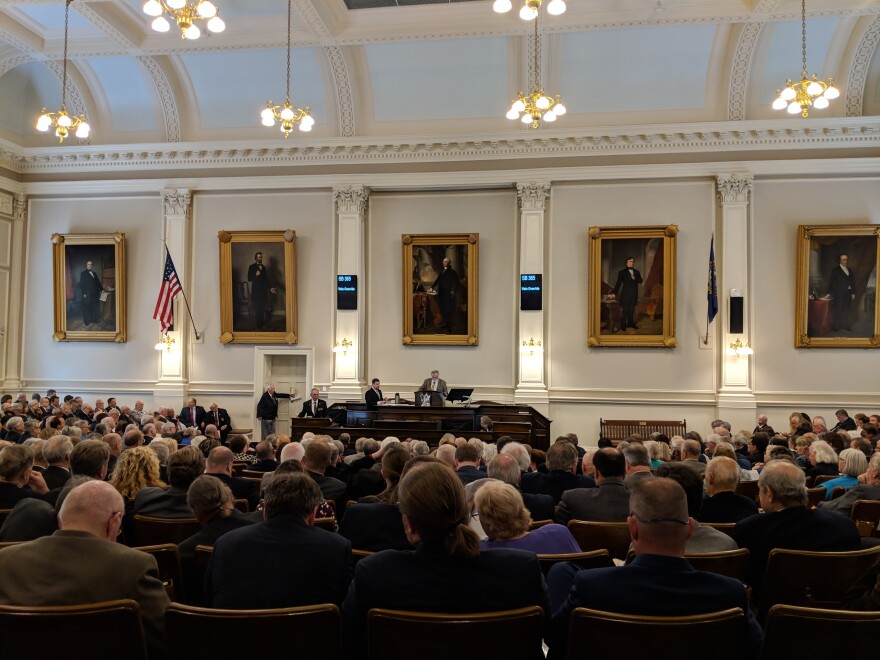New Hampshire’s timber industry scored a major victory today as legislators narrowly voted to overturn Gov. Chris Sununu’s veto of a bill subsidizing biomass plants.
But lawmakers fell just short of overturning another energy veto that had become intertwined with the biomass bill – one subsidizing net metering.
On the biomass veto, the House of Representatives voted 226 to 113 – the minimum margin needed for an override.
The bill, which will now become law, requires utilities to buy more energy from wood and trash-burning power plants at a discounted rate for the next three years.
Sununu and other opponents argue it’s a subsidy for a small industry that will increase electric bills and air pollution.
But the timber industry and its allies countered, successfully, that the plan’s benefits to a big swath of the economy outweighed its costs.
“It’s a great day for the timber industry and the future of the timber industry,” said state Timberland Owners Association spokesman Steve Bjerklie after the vote. “Now we can have woodchips flowing again and a biomass market active again.”
He said workers across New Hampshire forests were breathing “a huge sigh of relief.”
But Gov. Sununu told reporters he’s disappointed by the override, which he says undermines his primary goal of lowering the state's high energy costs.
“There has to be a better way to pass legislation that doesn’t just keep letting politics drive rates up and up and up, on families that just can’t afford it and businesses that can’t afford it,” Sununu says.

State representatives did uphold Sununu’s veto of another bill he called an unfair, too-costly energy subsidy.
That bill would have raised the cap on large-scale net metering, which lets towns and businesses generate their own energy, like solar and hydro, and sell it back to the grid.
The state Senate voted to override the net metering veto 21 to 3, the same margin as they voted on the biomass bill.
But the House didn’t follow suit – voting down the net metering override 217 to 128, about 14 votes shy of a passing margin.
The renewable energy industry had thrown its support behind the biomass bill in recent weeks, in hopes it would help carry the net metering override through. After the vote, they appeared crushed.
“We were so optimistic with the bipartisan support it had in the House and Senate, so we were hoping that this was going to be it,” said Madeleine Mineau, executive director of the state Sustainable Energy Association. “But I guess we’ll have to try again.”
She says she’d hoped the two bills would be revived together. The two affected industries – timber and renewable energy – campaigned against the vetoes under one header, after Sununu vetoed the bills with one message.
As for why the bills wound up separated, she said she thought “the optics of immediate job loss” in the timber industry may have appealed more to legislators.
“Losing something we already have -- and that is very important to people – feels more immediate, than preventing investment into a future – into something we don’t yet have much of in New Hampshire,” she said.








